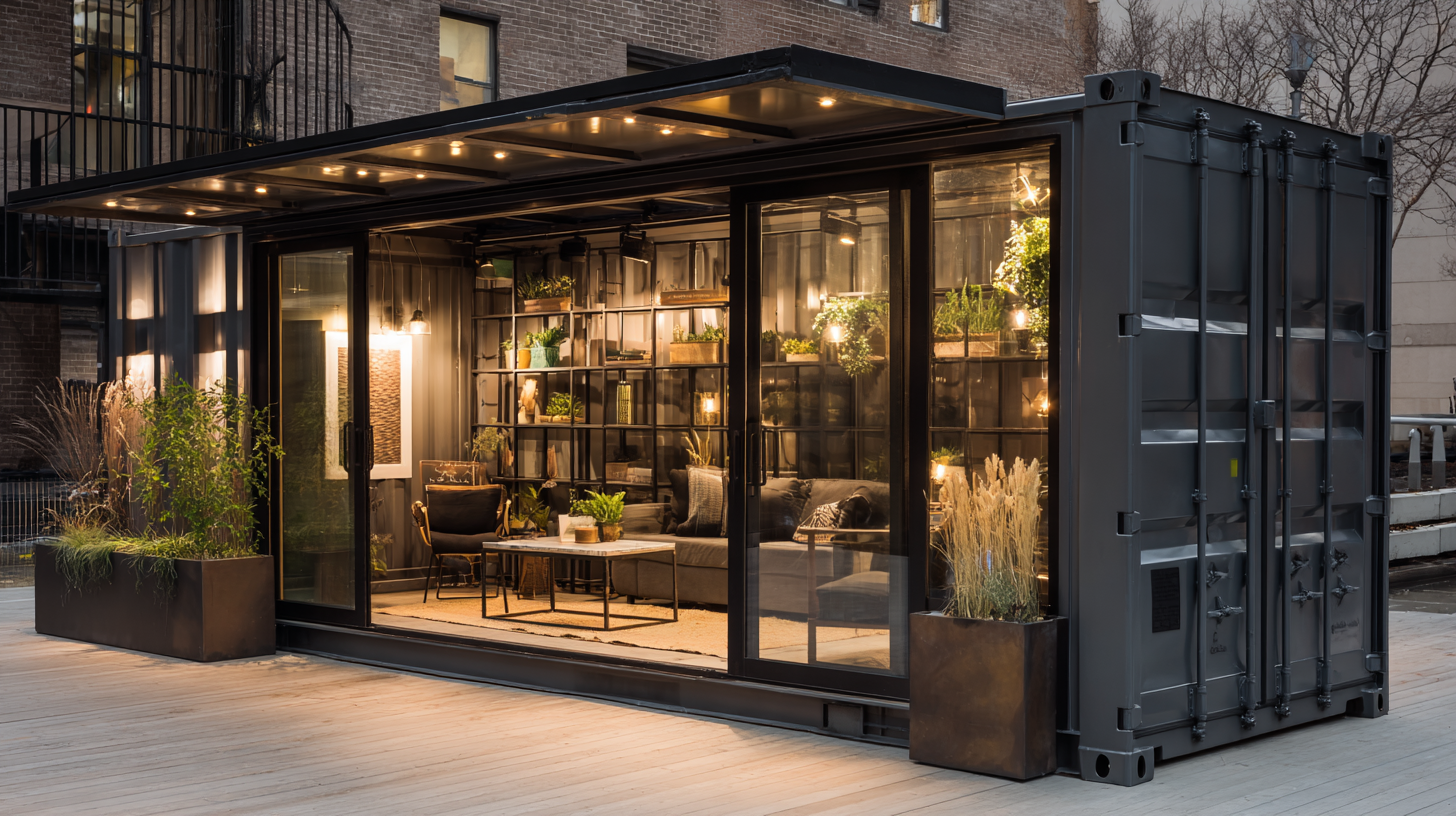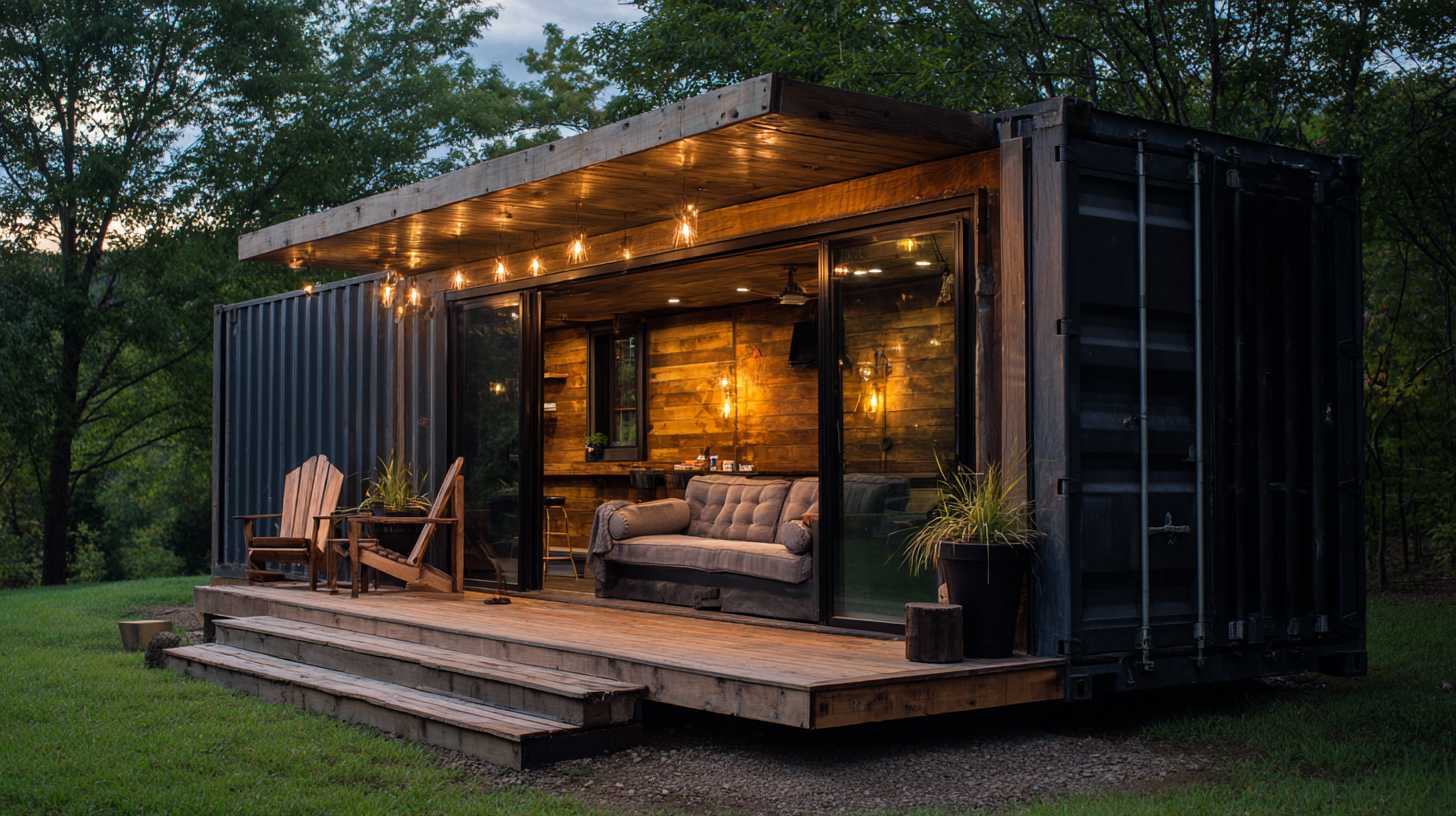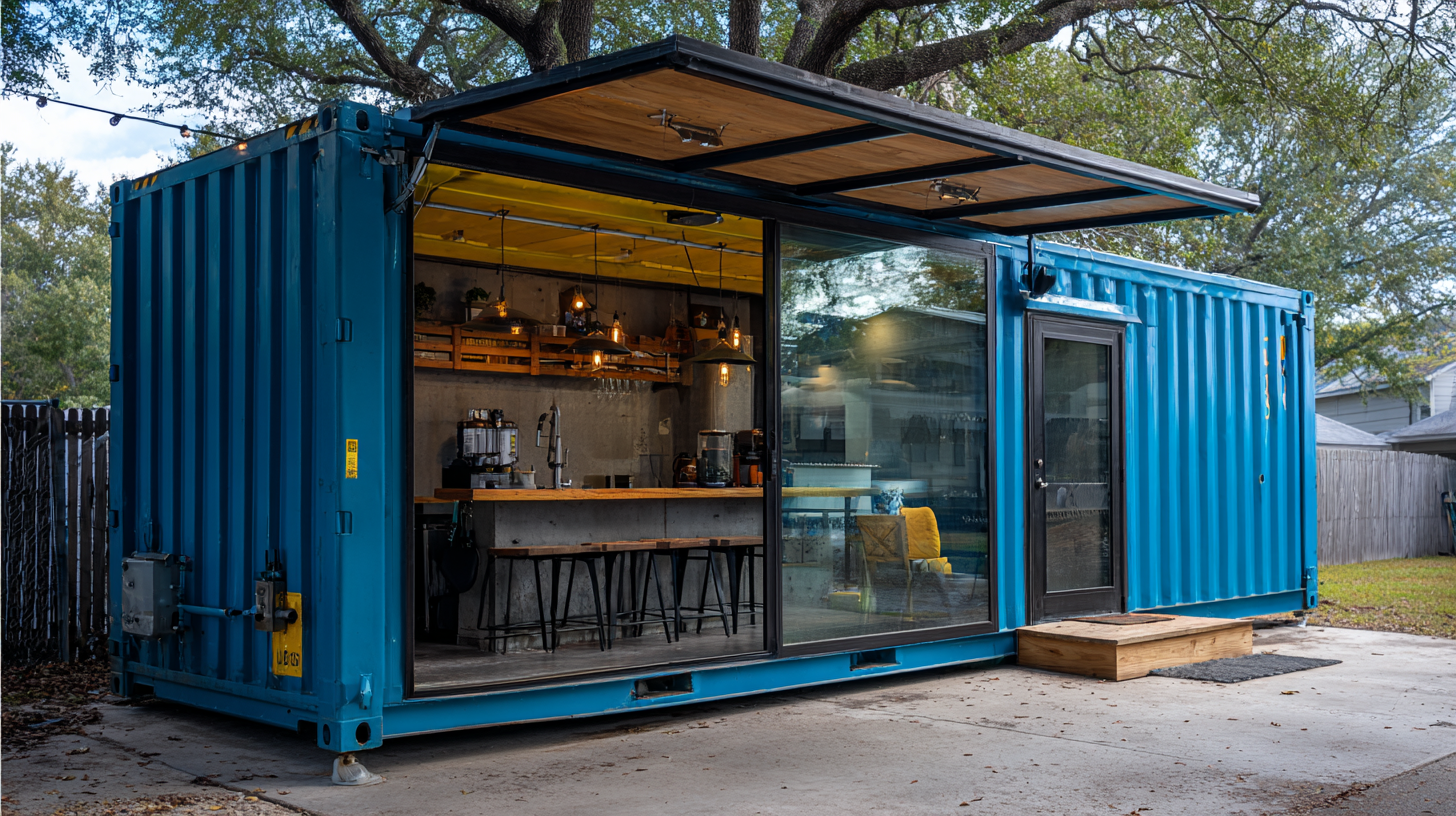Maximizing Space: Innovative Uses for Your 20 ft Shipping Container You Haven't Considered
In recent years, the versatility of the 20 ft shipping container has captured the attention of both consumers and businesses alike, turning these metal boxes into a focal point for innovative design and practical use. According to a report by Transparency Market Research, the global shipping container market is poised to expand significantly, driven by the growing trend of sustainable housing and portable structures, which has surged by 20% over the past five years. With the numerous creative applications ranging from stylish home offices to vibrant community hubs, the potential for maximizing space within these containers is virtually limitless. Moreover, a study by IBISWorld highlights that the container modification industry is witnessing an annual growth rate of approximately 5%, indicating a shift in consumer mindsets towards adaptable living and working spaces. This article explores imaginative and seldom-considered uses for the 20 ft shipping container, showcasing how this once-simple vessel can be transformed into extraordinary spaces tailored to meet diverse needs.

Innovative Home Offices: Transforming a Shipping Container into a Productive Workspace
Transforming a shipping container into a home office can unlock unique opportunities for productivity and creativity.
The compact design of a 20 ft container makes it easy to set up an effective workspace, even in tight urban environments. By integrating functional furniture that can be concealed when not in use, such as foldable desks and built-in storage, you can create a stylish work environment that doesn’t compromise on aesthetics.
In addition to practicality, using a shipping container as an office space offers the advantage of mobility. As remote work becomes increasingly prevalent, having an adaptable workspace can cater to your changing needs, whether it's relocating for a project or setting up at a festival. Innovative designs also incorporate technology to streamline daily tasks, allowing you to focus on what matters most.
Thus, with a little creativity and resourcefulness, anyone can transform a simple shipping container into an inspiring and efficient workspace that promotes productivity.
Eco-Friendly Living: Utilizing Shipping Containers for Sustainable Tiny Homes
Shipping containers offer an innovative solution for sustainable living, particularly in the form of tiny homes. As the demand for eco-friendly housing increases, repurposing these robust metal boxes into cozy, functional residences has gained traction. The insulating properties of these containers, combined with the potential for solar panel installation, allow homeowners to reduce their carbon footprint while enjoying modern amenities.
Moreover, using shipping containers for housing promotes efficient land use, making them ideal for urban settings where space is at a premium. These homes can be designed to blend seamlessly with their surroundings, utilizing green roofs and walls, and incorporating rainwater harvesting systems. By embracing this trend, individuals not only contribute to a more sustainable future but also explore creative designs that reflect their personal style while minimizing material waste. The versatility of shipping containers transforms them from mere shipping mechanisms into innovative living spaces that encourage a sustainable lifestyle.
Maximizing Space: Innovative Uses for Your 20 ft Shipping Container
| Use Case | Description | Eco-Friendly Features |
|---|---|---|
| Tiny Home | Transform into a small, comfortable living space with essential amenities. | Uses recycled materials and reduces land use. |
| Home Office | A dedicated workspace that is separate from the home environment. | Promotes remote work and reduces daily commute emissions. |
| Garden Shed | Storage for gardening tools and supplies. | Encourages sustainable gardening practices. |
| Art Studio | A creative space for artists to work and showcase their art. | Utilizes minimal energy with natural lighting. |
| Pop-up Shop | Mobile retail space for local businesses. | Encourages local economy and minimizes permanent retail space use. |
Urban Farming: How Shipping Containers Can Revolutionize City Agriculture
Urban farming is rapidly transforming city landscapes, and using shipping containers as innovative agricultural spaces is at the forefront of this movement. With urban populations booming and the demand for fresh produce increasing, containers provide a scalable and efficient solution for indoor farming. According to recent reports, the global vertical farming market is expected to reach $12 billion by 2025, with significant investments in technologies that maximize sustainability and productivity. Shipping containers, often equipped with hydroponic and aeroponic systems, can produce crops year-round, free from the unpredictability of conventional farming.
Tips: To start your container farm, consider utilizing vertical farming techniques to maximize limited space effectively. Investing in LED grow lights can also enhance crop yields while reducing energy consumption.
By addressing food security challenges, container farming not only supplements local food systems but also reduces transportation emissions, as fresh produce is grown right where it is consumed. As cities begin to adopt policies that support urban agriculture, innovative models like container farms could play a crucial role in ensuring a sustainable food future. Chicago's agricultural sector has demonstrated that AI integration into urban farming can boost productivity and resilience, paving the way for similar advancements globally.
Tips: Stay informed about local zoning laws to ensure compliance while innovating in urban spaces, and explore partnerships with community organizations to enhance outreach and impact.

Pop-Up Retail: Leveraging Shipping Containers for Temporary Storefronts in Urban Areas
Pop-up retail has emerged as an exciting and innovative use of shipping containers, transforming urban spaces into vibrant shopping experiences. Cities often grapple with vacant lots waiting for construction, making shipping containers an ideal solution for temporary storefronts. These adaptable structures not only capitalize on unused urban areas but also provide brands with a unique opportunity to engage consumers in a fresh and interactive way. The versatility of shipping containers allows for aesthetically pleasing designs that can mimic high-end retail environments, bringing a luxe feel to the shopping experience.
As seen in various urban initiatives, shipping container malls and marketplaces are revitalizing city centers and offering platforms for minority-owned businesses. These pop-up formats create unique customer experiences while allowing emerging brands to test their concepts without the long-term commitment of traditional retail spaces. By implementing innovative layouts and tailored offerings, these temporary installations are not only attractive to customers but also exemplify how cities can creatively counteract the challenges posed by vacant retail spaces. The ongoing success of container-based pop-up shops signifies a shift in consumer preferences and an increasing acceptance of novel retail formats that prioritize experience and accessibility.

Versatile Storage Solutions: Creative Uses of Shipping Containers in Various Industries
Shipping containers have rapidly evolved from simple cargo carriers to versatile storage solutions across various industries. Their robust design and mobility make them ideal for repurposing into functional spaces. In agriculture, farmers are converting shipping containers into climate-controlled storage units for produce, extending shelf life and reducing waste. These containers can also serve as on-site offices or break rooms, providing a cost-effective and portable alternative to traditional buildings.
In the construction sector, shipping containers are increasingly used as modular housing or worker accommodations. They can be stacked, adapted, and modified to create affordable housing complexes or temporary living spaces. Creative entrepreneurs are also transforming containers into pop-up shops, cafes, or even art galleries, offering unique experiences and attracting customers in busy urban areas. The adaptability of shipping containers is not just limited to storage; they provide innovative solutions that meet diverse needs while contributing to sustainability efforts through recycling and reusing materials.



